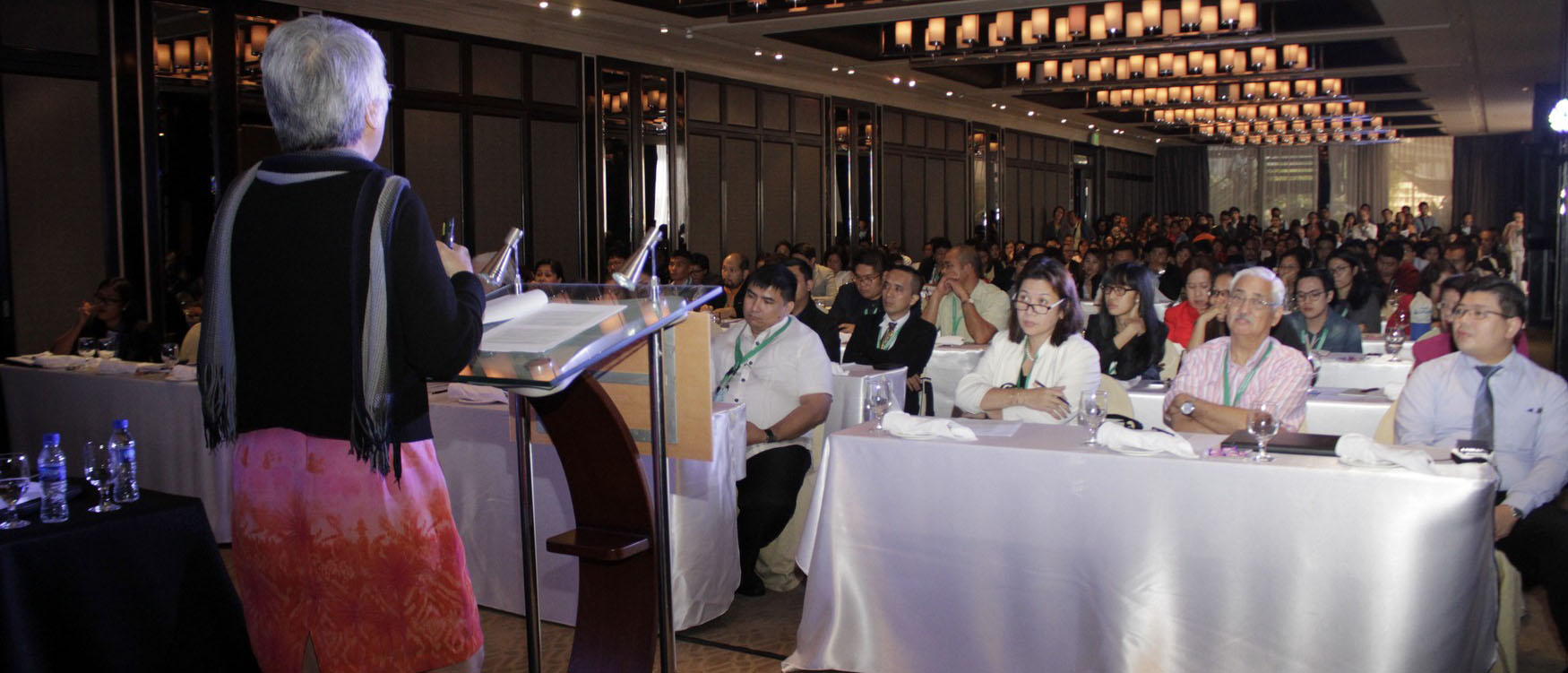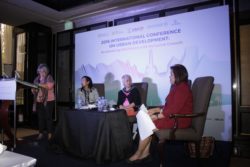
Promoting Inclusive Development in the Philippines
The Philippines is undergoing rapid urbanization: According to UN-Habitat, the percentage of Filipinos living in urban areas will grow from 50 percent currently to 84 percent by 2050. Much of this growth is occurring in secondary cities that are highly vulnerable to natural disasters. As these smaller cities grow, how can we help them build resilience while ensuring that their development is inclusive and gender-responsive?
The USAID Scaling Up Resilience in Governance (SURGE) project seeks to strengthen the capacity of these cities, and Banyan Global contributes with gender and social inclusion programming. In July, Banyan Global organized a session on Promoting Social Inclusion in Urban Environments at the 2016 International Conference on Urban Development. Approximately 1,200 delegates attended the conference in Pasay City, making it the largest conference of its type in the Philippines.
Banyan Global’s session featured four urban development and gender experts, with academics, development practitioners, local government officials, and civil society organizations in attendance. Dr. Mary Ruby Palma, head of Quezon City Gender and Development Resource & Coordinating Office, moderated the event and shared her experiences of mainstreaming gender in disaster protocols.
The three panelists included Maria Isabelle Climaco, mayor of Zamboanga City; Luvy Villanueva, manager of the Supporting Women’s Economic Empowerment in the Philippines project; and Dr. Jeanne Frances Illo, Gender Advisor for the USAID Advancing Philippine Competitiveness (COMPETE) project. Ms. Climaco spoke about ensuring that Zamboanga’s governance is participatory and considers the needs of all people. Her work as mayor has included programs to target interfaith populations, women, LGBT groups, and children and youth. 
Next, Ms. Villanueva advocated for women’s economic empowerment as an inclusive growth strategy, explaining that it leads to better health and educational outcomes for children as well as economic growth through job creation. Finally, Dr. Illo shared insights on gender mainstreaming and discussed her work with tools to build capacity for gender-responsive planning and programming.
The session encouraged participants to think about the importance of gender mainstreaming and inclusive development as they engaged panelists with questions and learned from the exchange of best practices.
